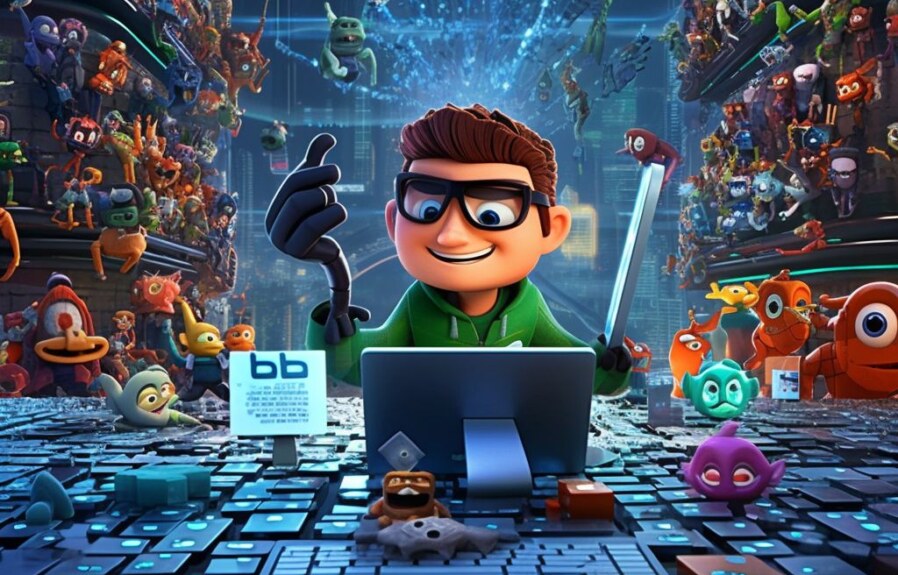As technology advances, we have become increasingly dependent on smartphones, and with this dependence comes the risk of getting hacked. Whether it’s phishing emails or malware-infected apps, hackers will stop at nothing to gain access to your iPhone. If you think someone has successfully breached your iPhone’s security, then it’s time to take action. In this article, we will explore the steps you can take to remove a hacker from your iPhone and keep your personal information safe. Keep reading to learn how to spot the signs of a hacker attack and what to do if you find yourself in this situation.
1. How to Identify If Your iPhone Has Been Hacked?
In today’s digital age, smartphones are no less than a personal diary. From personal messages to confidential work emails, we have all our important data on our phones. Consequently, the possibility of hacking has increased exponentially. According to a report by Symantec, more than 87% of all smartphones in the world are susceptible to hacking attempts.
Therefore, it’s essential to know how to identify if your iPhone has been hacked. Here are a few signs that may indicate that your iPhone has been compromised –
Sudden Rise in Data Usage
If you notice a sudden increase in your data usage, it could be a sign that a hacker is using your iPhone to access their own data or is using your phone’s internet connection for illegal activity.
Battery Life Drain
If your battery life is draining faster than usual, it could be due to the background activities of an app installed by the hacker.
Suspicious Pop-Ups and Messages
If you notice frequent pop-ups, messages or links while using your iPhone, it could mean that a malware or spyware is stealing your data.
Strange Apps and Programs Installed
If you see an app installed on your phone that you never downloaded, it could be a sign that your iPhone has been hacked. Moreover, keep a lookout for any new programs installed without your permission or knowledge.
In conclusion, noticing any of these signs doesn’t necessarily mean that your iPhone has been hacked. However, if you observe multiple such symptoms, it’s better to run a malware scan or consult a cybersecurity expert immediately to minimize the damage.
2. Steps to Remove a Hacker from Your iPhone
If by any chance, you notice any suspicious activity on your iPhone or become a victim of hacking, it is important to be proactive and take immediate action to remove the hacker from your iPhone. Here are useful steps to take:
Step 1: Disconnect From the Internet
As soon as you suspect that your iPhone is hacked, disconnect it from the internet immediately. This will prevent the hacker from controlling your device remotely through the internet.
Step 2: Back Up Your iPhone
Before proceeding with the removal of the hacker, ensure you have a backup of your important data and files either on a cloud storage or an external device, such as a hard drive. This is to prevent data loss during the removal process.
Step 3: Update Your iPhone
Ensure your iPhone is updated to the latest iOS version. This is important as the latest version comes with improved security features and bug fixes for vulnerabilities that cybercriminals may use to gain access to your iPhone.
Step 4: Remove Suspicious Applications
Cybercriminals use malicious applications to access and control iPhones remotely. Therefore, it is recommended to uninstall all suspicious applications that you do not recognize, especially if you did not download them from the official App Store.
Step 5: Reset Your iPhone
If you have tried all the above steps and still notice suspicious activity or the hacker’s presence, the next step is to reset your iPhone to its factory settings. This means erasing all data and files on your iPhone, including any malware and viruses that may have infected your device. However, ensure you have the backup data from step 2 before resetting your iPhone.
By following these steps, you can remove a hacker from your iPhone and ensure it’s protected from future cybersecurity threats. Remember, prevention is better than cure, and maintaining high security standards with frequent updates and password changes can go a long way to protecting your iPhone from hacking attempts.
3. How to Secure Your iPhone from Future Hacking Attempts?
It is essential to secure your iPhone from future hacking attempts to prevent any data loss or identity theft caused by a cyberattack. Here are some practical steps that you can take to secure your iPhone from future hacking attempts.
1. Keep Your iPhone Up to Date: Regularly updating your iPhone’s software enhances the security features and patch any vulnerabilities that could be exploited by hackers. To check for updates, go to the Settings app, tap General, then tap Software Update.
2. Use a Strong Passcode: A strong passcode makes it difficult for hackers to access your iPhone, especially when combined with TouchID or Face ID. Avoid using common passcodes like “1234” and instead, use a combination of letters, numbers, and special characters that are difficult to guess.
3. Enable Two-Factor Authentication: Two-factor authentication adds an extra layer of security by requiring a code sent to your phone or an authentication app before logging in. Enable Two-Factor Authentication by going to Settings, tapping your name, then Password & Security, and then Turn on Two-Factor Authentication.
4. Disable Siri on Lock Screen: Siri on your lock screen makes it possible for anyone to access your personal information. To disable Siri, go to Settings, tap Siri & Search, then turn off Allow Siri When Locked.
5. Use a VPN: A VPN (Virtual Private Network) encrypts your internet connection, making it difficult for hackers to intercept your data. With a VPN, you can browse the internet securely, access geo-restricted websites, and avoid censorship.
6. Be Cautious of Public Wi-Fi: Public Wi-Fi is an easy target for hackers to gain access to your devices. Always avoid connecting to public Wi-Fi networks, especially for sensitive activities like online banking.
By following these steps, you can enhance your iPhone’s security features and prevent future hacking attempts. Remember, keeping your iPhone secure is crucial in today’s interconnected world.
4. Common Signs of a Hacking Attempt and How to Prevent Them
As an iPhone user, it’s not uncommon to worry about hacking attempts. Hackers may attempt to gain access to your device to steal your personal information, install malware or spyware, or use your phone for malicious purposes. Fortunately, there are some common signs to look out for and steps you can take to prevent these hacking attempts.
Signs of a Hacking Attempt
Some common signs of a hacking attempt on your iPhone include:
- Unexplained app installations on your device
- Changes to your homepage or lock screen
- Strange notifications or pop-ups appearing on your device
- Unusual data usage or battery drain
- Slow device performance or crashes
If you notice any of these signs, it’s important to take action immediately to remove the hacker from your device.
Preventing Hacking Attempts
One of the best ways to prevent hacking attempts on your iPhone is to keep your device updated with the latest software updates. These updates often contain security patches to fix any vulnerabilities that hackers may try to exploit.
Another way to prevent hacking attempts is to avoid clicking on suspicious links or downloading apps from untrusted sources. Be wary of messages or emails that ask you to click on a link or provide your personal information.
It’s also a good idea to set a strong passcode for your iPhone and enable two-factor authentication for added security. Be sure to use a complex and unique password that cannot be easily guessed.
Finally, be mindful of the personal information you share on your iPhone. Avoid recording sensitive data on your device, including your banking details, social security number, and other personal identification information.
By following these best practices and being vigilant for signs of a hacking attempt, you can help keep your iPhone secure and prevent cybercriminals from accessing your personal information.
5. Tips to Protect Your Personal Information from iPhone Hackers
Your personal information is at risk of being stolen or compromised when your iPhone gets hacked. Here are some tips to keep your personal information protected from iPhone hackers.
Use a Strong Password or Passcode
One of the basic steps in protecting your iPhone from hackers is to use a strong password. Make sure to avoid using simple and easily guessable passwords. Use a combination of letters, numbers, and symbols, and make it long enough to increase its strength. Additionally, use a long passcode instead of a short one to add complexity.
Enable Two-Factor Authentication
Two-factor authentication adds an extra layer of security to your iPhone. It requires you to provide a second form of identification to access your account or device. When turned on, it will send a verification code to your trusted device or phone number to confirm your identity. This makes it difficult for hackers to gain access to your iPhone even if they know your password.
Avoid Suspicious Links and Emails
Hackers use links and emails to trick users into giving away sensitive information. They might send you a malicious link or email that looks legitimate at first glance. Avoid clicking on suspicious links or downloading attachments from unknown senders. Always double-check the sender’s email address and avoid replying or giving away personal information.
Keep Your iOS Updated
Apple regularly releases security updates to address vulnerabilities that hackers can exploit. Keeping your iPhone’s software up-to-date is an effective way to protect it from known exploits. To ensure that you’re always up-to-date, turn on automatic updates in your iPhone’s settings.
Be Mindful of Public Wi-Fi Networks
Public Wi-Fi networks can be risky because hackers can intercept and eavesdrop on your online activity. Avoid using public Wi-Fi for sensitive transactions such as banking or online shopping. Instead, use a secure mobile network or a VPN (Virtual Private Network) service to encrypt your data.
Following these tips can help you protect your personal information from iPhone hackers. Remember to always be cautious and vigilant to stay one step ahead of potential threats.
6. Best Practices to Keep Your iPhone Safe from Cyberattacks
Despite all the measures you take, there’s always a chance of an iPhone hack. In this section, we will discuss some best practices that you can follow to keep your iPhone safe from cyberattacks.
Update your iPhone Software Regularly
Updating your iPhone software regularly is essential to keep your phone safe from any security vulnerabilities. The latest software updates contain security patches, fixes and enhancements that protect your device from potential security threats. To update your iPhone software, go to the Settings app on your device, click on General, then click on Software Update.
Use Strong Passwords and Two-Factor Authentication
Using a strong password and enabling two-factor authentication is an excellent way to protect your iPhone from unauthorized access. A strong password should contain a combination of upper and lower case letters, symbols, and numbers that are difficult to guess. Two-factor authentication adds an extra layer of security by requiring a unique code sent to your phone to access your accounts.
Be Careful with Public Wi-Fi
Public Wi-Fi networks are typically not secure, making them easy targets for hackers. If you have to use public Wi-Fi, avoid entering in any sensitive information such as passwords, financial information, or personal data. Consider using a Virtual Private Network (VPN) app to encrypt your internet connection and protect your data online.
By following these best practices, you can stay ahead of potential cyber attacks and protect your iPhone from hackers. Remember to stay vigilant and never let your guard down as hackers are always looking for their next target.
People Also Ask:
1. How do I know if my iPhone has been hacked?
You may notice unusual activity on your iPhone such as strange pop-ups, apps opening on their own, battery draining faster than usual or unauthorized purchases. You can also check for any unfamiliar apps or software installed on your iPhone.
2. How can I remove a hacker from my iPhone?
The first step is to change your Apple ID password and enable two-factor authentication. Remove any unfamiliar apps or software installed on your iPhone. You can also reset your iPhone to factory settings to completely wipe out any malware.
3. Is there an app to remove hackers from my iPhone?
There is no app that can guarantee the removal of a hacker from your iPhone. The best option is to follow the steps mentioned above, such as changing your passwords and resetting your iPhone to factory settings.
4. Can Apple remove a hacker from my iPhone?
Apple can provide support and guidance on how to remove a hacker from your iPhone, but they cannot physically remove the hacker from your device. It is still up to the user to follow the necessary steps to secure their device.
5. How can I prevent future hacking attempts on my iPhone?
To prevent future hacking attempts, keep your iPhone’s software up-to-date, avoid downloading apps from unknown sources, use strong passwords and enable two-factor authentication. Be careful when clicking on suspicious links or messages and always be mindful of the security of your device.
Conclusion:
If you suspect that your iPhone has been hacked, it is important to take immediate action to secure your device. Follow the steps mentioned above to remove any hackers from your iPhone and take preventative measures to avoid future hacking attempts. Always remember to prioritize the security of your device and regularly update its software to stay one step ahead of potential hackers.



